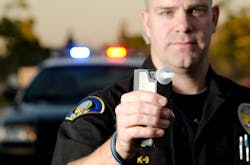Utah Lowers Legal Limit for Alcohol
Utah is the first state in the nation to lower its DUI limit from .08 to .05.
State Governor Gary Herbert signed the legislation into law on March 23 in a move that safety organizations are supporting.
"At its core, I believe H.B. 155 is good public policy," Governor Gary Herbert said. "I signed it into law to help strengthen Utah's impaired driving laws and to reduce the number of alcohol-related deaths on our roads. This law does not target drinking; it is a public safety law that targets impaired driving."
Herbert also mentioned he will hold a special session before the bill takes effect on Dec. 31, 2018. He invited all those for and against to attend upcoming public hearings on
"As governor, my ultimate responsibility is to evaluate this input and determine whether or not the bills placed on my desk will make good public policy." Herbert said in a statement. "Moreover, our primary objective with the enactment of any new law is to improve the quality of life and safety of our citizens. This law will save lives, therefore it is good public policy and will move us closer to achieving our goal of zero fatalities.”
Preliminary estimates from the National Safety Council (NSC) indicate as many as 40,000 people were killed on the roads in 2016, the deadliest year in nearly a decade, according to the organization.
The NSC stood behind Utah lawmakers, commending Herbert for signing into law as well as State Representative Norm Thurston for introducing the legislation that coincides with the organization's Road to Zero initiative to end traffic fatalities.
"We need not only strong legislative actions like Utah's, but also a cultural sea change about the nature of impairment," the NSC said in a statement. "It does not begin at the legal limit – it begins with the first drink."
In its lists of .05 BAC Safety Facts, the National Transportation Safety Board (NTSB) recommends that all 50 states sets limit of .05 or lower, saying it would lead to reductions in crashes, injuries, and fatalities.
The NTSB estimates a total of 1,790 lives annually can be saved if all states lowered their BAC limits to .05. The agency estimates a total of 24,686 lives were saved between 1983 and 2014 after legislators lowered BAC limits to .08.
